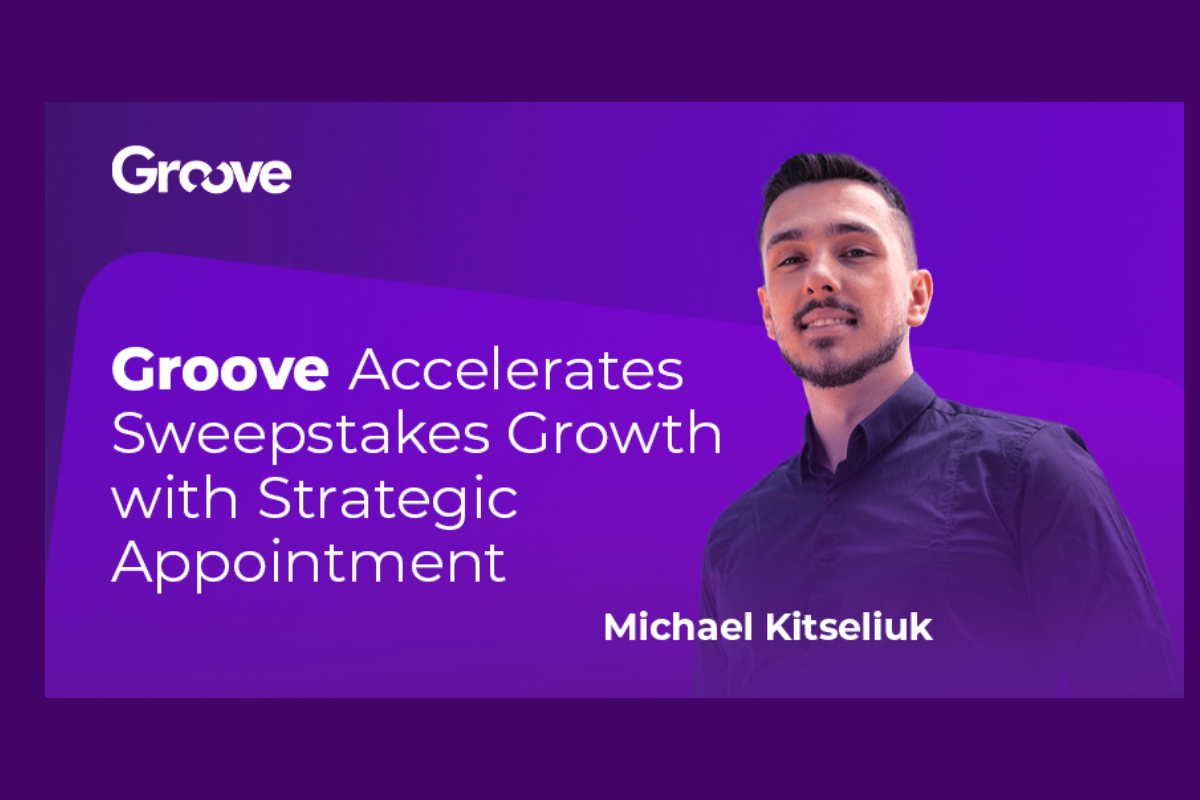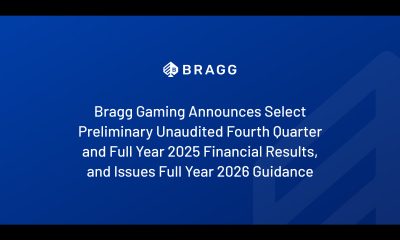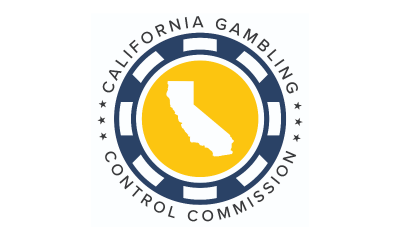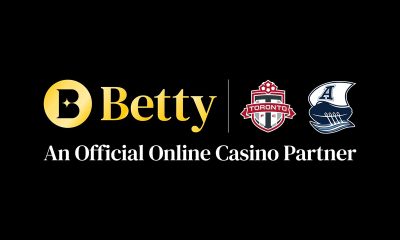Industry News
Zendesk’s customer experience research reveals power of one “seamless conversation”

“Customer expectations are at an all-time high, and loyalty is fleeting,” according to the annual flagship report from leading global CRM provider Zendesk, which provides customer experience software to industry brands such as Big Fish Games, GameSys, Mr Green, LeoVegas, White Hat Gaming and more. At a time where brand allegiance is transient across land-based and online brands, the research provides insights into how companies, from start-ups to successful pioneers, can drive service and ensure customer reliability…
Zendesk, Inc., which serves more than 150,000 customers across a multitude of industries in over 30 languages, has been established in the gaming industry for more than twelve years and has recently released its annual Customer Experience Trends Report 2020 research, identifying trends that translate to gaming companies of all sizes.
Elisabeth Zornes, Chief Customer Officer at Zendesk explained: “While customer expectations continue to rise, the Zendesk Customer Experience Trends Report 2020 shows that companies aren’t living up to these expectations. For example, according to the report, many of the channels people want for fast, efficient resolution aren’t being offered. In fact, only a third of companies offer self-service options like knowledge base help centers, and less than a third offer chat, social messaging, in-app messaging, bots or communities.”
The issue of tech-based service solutions isn’t restricted to just iGaming as the report also highlights the increasing market saturation in land-based and hospitality too. “Businesses are facing competition from companies that are providing purpose-driven solutions in service of the customer, raising the stakes for everyone,” she said. “Well-established and iconic brands like the Four Seasons remain one step ahead because they invest in new technologies in continued pursuit of an easy and excellent customer experience.
“This presents a challenging landscape, and for companies that are struggling to navigate, the report identifies what businesses of all sizes, in every industry, can do to provide excellent customer service and create loyal customers, starting with the initial sales process.”
Based on global survey results and the Zendesk Benchmark, an index of product usage data from more than 45,000 global companies using Zendesk’s leading customer experience platform, the 2020 report highlights how the most successful companies achieve their position by executing four essential customer service attributes. These comprise: maintain one seamless conversation; harness customer data; embrace artificial intelligence; and, give customer experience a seat in the C-suite.
“Customers today expect uninterrupted conversations that don’t start or stop in the middle of their interaction or get lost in a different communication channel,” Zornes said. According to the report, half of customers will switch to a competitor after just one bad experience, and 80 percent will leave after multiple bad experiences. The research also reveals that service is a primary driver of customer loyalty, second only to price in determining whether customers feel loyal to a brand.
When it comes to data, the Zendesk Customer Experience Trends Report 2020 findings show that customers prefer companies to keep track of their data if it leads to better experiences, with more than 75 percent of customers wanting the personalization that comes with better insights. Being able to manage and interpret data is crucial for understanding customers and proactively identifying opportunities to better serve them.
Speaking about AI innovation in customer service, Zornes added: “As AI innovation becomes more accessible, it represents the future of customer service, and there is still a huge opportunity for companies to start taking advantage of the technology. Our findings show that only 37 percent of customer experience teams are using AI. However, high-performing customer experience teams are twice as likely to embrace AI, incorporating the technology across more channels and interactions with customers.
“And finally, in terms of C-level customer service approach, the most successful companies are tapping into the value of prioritizing the customer experience, and forward-thinking companies are bringing in leaders who can understand and champion the customer.”
While these four attributes aren’t a shortcut that immediately equals success, they are definitely a step in the right direction as customer service continues to evolve in the next decade. Focusing on the approach companies can take going into 2020 and beyond, Zornes concluded: “We are in an entirely new era of customer expectations to such an extent that service can make or break a company. To build a loyal customer base and truly differentiate themselves, companies of all sizes across industries and geographies must provide an easy and frictionless customer experience, earning and re-earning a customer’s business with every interaction.”
To learn more about the most important trends in the customer experience industry, the full the Zendesk Customer Experience Trends Report 2020 can be downloaded via https://www.zendesk.com/customer-experience-trends/.
Groove
Groove Technologies Targets High-Growth Sweepstakes Market Following Strategic Appointment

Groove Technologies, a prominent iGaming aggregator and platform provider, has today revealed a strategic enhancement of its sweepstakes operations through the internal elevation of Michael Kitseliuk to the newly established position of Sweepstakes Account Manager. This action highlights Groove’s dedication to continue expanding in one of the industry’s most vibrant and swiftly growing sectors.
The appointment comes after a phase of rigorous technical advancement and evaluation, placing Groove’s enterprise-grade platform to provide unmatched sweepstakes solutions. The platform, famous for its cutting-edge player engagement features, live analytics, and a collection of more than 15,000 games from over 150 leading providers, is now enhanced to achieve new heights of scalability and profitability for operators using the sweepstakes model.
Michael Kitseliuk, with three years of essential experience from Groove’s technical operations team, will lead this initiative in his new role. His profound technical knowledge guarantees a smooth and straightforward integration experience for partners.
“I’m thrilled to be leading the charge on Groove Sweepstakes,” said Kitseliuk. “This vertical represents the forefront of market accessibility. The lighter regulatory footprint allows operators to launch faster and tap into vast audiences with incredible speed. We’re not just following a trend; we’re empowering our partners to unlock a significant new revenue stream and open doors to previously complex markets.”
The need for high-quality sweepstakes material has reached unprecedented levels. Groove’s strong entertainment ecosystem, which introduces more than 150 new games each month, is distinctly suited to drive this expansion. The firm has assembled a robust stream of content, prepared for delivery via its sophisticated platform.
Rachel Tourgeman, Head of Partnerships at Groove, highlighted the extensive preparation and market offering: “This isn’t a one-size-fits-all solution. We’ve undertaken rigorous, bespoke technical testing for each provider to guarantee a flawless experience for both the operator and the player. This diligence means we can now offer our operator cluster access to a vast network of nearly 50 premier game providers specialising in sweepstakes coins, all integrated and ready for launch.”
This strategic focus amplifies Groove’s core strengths: speed, variety, and technological excellence. By dedicating new leadership to the sweepstakes vertical, Groove ensures its partners can capitalise on this growth with a competitive edge.
Yahale Meltzer, Co-Founder and COO at Groove, concluded: “Our promotion of Michael into this dedicated role signals a new era for our sweepstakes platform. We are harnessing its full potential to offer operators super-fast integrations, a proven and diverse game library, and a technically superior platform. This is a definitive step in providing a complete, market-leading solution for every segment of the iGaming industry.”
The post Groove Technologies Targets High-Growth Sweepstakes Market Following Strategic Appointment appeared first on Eastern European Gaming | Global iGaming & Tech Intelligence Hub.
Adam Kamiar Commercial Director at Wildz Group
Wildz Group unveils Blingi

The Wildz Group has launched a new online casino offering to enhance the company’s expanding portfolio. Blingi aims to connect with new audiences through an innovative strategy for iGaming entertainment.
Says Adam Kamiar, Commercial Director at Wildz Group, “Blingi is a product we feel simplifies many of the processes customers experience when exploring an online casino. Our teams have focused on optimising the journey, making it easier and faster from the first click. The result is an online casino product that focuses on what matters: the world’s most popular games in a seamless environment from start to finish”.
Blingi offers players the chance to get stuck right into the good stuff, offering:
- Trustly Pay N Play – players can receive their winnings to their bank account within minutes of approval, with instant money transfers 24/7 – 365 days a year.
- No registration required.
- A huge range of big-name games from world-renowned providers.
- Frequent promotions | value adds | bonus opportunities
Operators licensed by the MGA have indicated that the casino’s branding and product range will particularly attract players in the region where it operates.
Wildz Group’s online casino brands, including Wildz, Wheelz, Caxino, Spinz, Chipz, and Tuplaus, present appealing iGaming options to players, whereas Blingi provides a distinctive user experience featuring Daily Cashback.
Kamiar further comments on shifting market conditions: “Our consumers are keen gamblers, so we’re making sure to offer superb products based on top-notch security and compliance so that they can play with complete peace of mind. Our goal is to ensure that we’re leading the way when it comes to player protection across world-class products in every market in which our brands are available.”
Wildz Group has established key collaborations with top game providers globally to guarantee that players enjoy casino platforms tailored to their desires—an approach centered on players that has secured the company substantial market share. The selection of games is enhanced by the deliberate implementation of reliable and secure payment methods. Blingi is the inaugural brand of Wildz Group to provide Trustly, an open banking payment method favored by iGaming customers.
“2026 is not without its challenges,” concludes Kamiar, “but we feel that we’ve got all our resources in place to make a lasting impact in industry, so we’re confident that we can say ‘watch this space’, knowing that good things are to come”, he concludes.
The post Wildz Group unveils Blingi appeared first on Eastern European Gaming | Global iGaming & Tech Intelligence Hub.
Adam Lewis Chief Executive Officer at AxiumAI
AxiumAI taps ex-Entain leader Claire Painting to lead customer experience as CXO

Extensively experienced Painting collaborates to develop experience strategy as AI revolutionizes sportsbook interaction.
AxiumAI, a frontrunner in AI-powered autonomous player engagement, has announced the appointment of Claire Painting as Chief Experience Officer (CXO), enhancing the company’s leadership team as operators transition to AI-enhanced player engagement.
Recognised for uniting marketing, product, UX, and technology teams to create seamless, consumer-focused experiences at scale, Painting will play a key role in aiding AxiumAI’s ongoing growth and future vision as the provider enhances its AI-driven engagement platform for global operators.
Painting brings over 20 years of experience in the international sports betting and gaming sector to AxiumAI. Most recently, she worked as the Director of Player Experience at Entain, where she managed a worldwide cross-functional team of more than 100 experts located in the UK, Gibraltar, Vienna, Hyderabad, and Manila.
While at Entain, she defined and executed the player experience strategy for the operator group’s global range of brands. This encompassed supervision of essential processes like registration, payments, account management, compliance, promotions, and gamification, along with the creation of worldwide UX/UI design systems and frameworks for measuring customer experience.
The appointment strengthens AxiumAI’s leadership as the company enhances its autonomous player engagement abilities and aids operators in providing real-time, personalized 1:1 player experiences.
Claire Painting, Chief Experience Officer at AxiumAI, said: “The future of player experience will be defined by technology that understands context, adapts in real-time and delivers meaningful interaction at scale. AxiumAI is building that capability, and I am excited to help shape autonomous engagement that will inspire players and drive step-change growth for operators.”
Adam Lewis, Chief Executive Officer at AxiumAI, added: “Claire brings exceptional expertise in player engagement across marketing, product and customer experience. Combined with her ability to connect teams and technology around the player, she is uniquely positioned to lead this area at AxiumAI. She will play a key role as we continue to build intelligent, customer-led solutions for operators globally.”
The post AxiumAI taps ex-Entain leader Claire Painting to lead customer experience as CXO appeared first on Eastern European Gaming | Global iGaming & Tech Intelligence Hub.
-

 Adjusted EBITDA7 days ago
Adjusted EBITDA7 days agoBragg Gaming Announces Select Preliminary Unaudited Fourth Quarter and Full Year 2025 Financial Results, and Issues Full Year 2026 Guidance
-

 Bagley-Keene Act7 days ago
Bagley-Keene Act7 days agoCalifornia Gambling Control Commission Issues Critical Guidance on Stakeholder Communications and Ex Parte Rules
-

 iGaming6 days ago
iGaming6 days agoPRAGMATIC PLAY UNEARTHS PROGRESSIVE MULTIPLIERS IN ROLLING IN TREASURES
-

 Comatel5 days ago
Comatel5 days agoCOMATEL CELEBRARÁ UNA FIESTA PARA CIENTOS DE OPERADORES TRAS FINALIZAR EL PRIMER DÍA DE LA FERIA ESPAÑOLA, INTERAZAR
-

 Betty Casino7 days ago
Betty Casino7 days agoBetty Casino Announces Partnerships with Toronto FC and Toronto Argonauts
-

 Africa7 days ago
Africa7 days agoGroove Targets Africa’s iGaming Boom at SiGMA Cape Town 2026
-

 Australia7 days ago
Australia7 days agoTabcorp Pays $158,400 Penalty for Taking Illegal In-Play Sports Bets
-

 Booming Games6 days ago
Booming Games6 days agoBooming Games Introduces Instastrike, the Latest Diamond Hits Trio



















